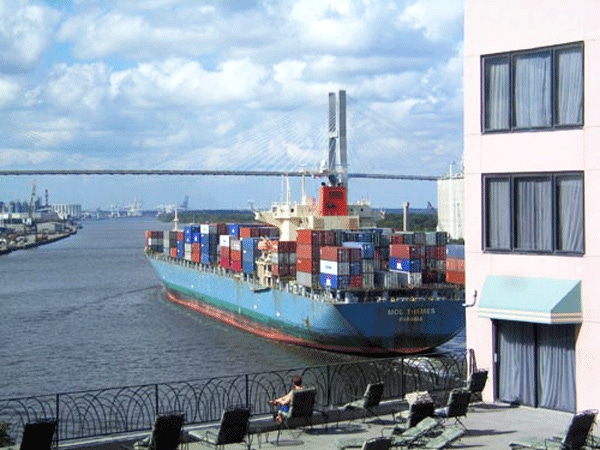
• South Korea is the globe’s fifteenth largest economy and has extremely high food prices. The new deal, which means substantial tariff drops on U.S. agricultural imports, is expected to provide much cheaper food for Koreans.• Pleased with the deal, Agriculture Secretary Tom Vilsack said U.S. agricultural exports to South Korea were valued at nearly $5 billion in 2010.• Up next for U.S. trade representatives: similar pending trade deals with Panama and Columbia.

Government officials have announced a U.S./South Korea Free-Trade Agreement (FTA) that is expected to benefit many sectors of U.S. agriculture.
Hailed by some as the most expansive trade deal since NAFTA, the deal has been welcomed by the Obama administration as it comes on the heels of a report showing an uptick in U.S. unemployment figures.
South Korea is the globe’s fifteenth largest economy and has extremely high food prices. The new deal, which means substantial tariff drops on U.S. agricultural imports, is expected to provide much cheaper food for Koreans.
Up next for U.S. trade representatives: similar pending trade deals with Panama and Columbia.
“We did not finalize this agreement on my recent visit to South Korea,” said President Obama, shortly after the deal was announced. “And I didn’t agree to it then for a very simple reason: The deal wasn’t good enough. It wasn’t good enough for the American economy, and it wasn’t good enough for American workers.”
After further negotiations, Obama said the current agreement emerged that “includes several important improvements and achieves what I believe trade deals must do — it’s a win-win for both our countries.”
Pleased with the deal, Agriculture Secretary Tom Vilsack said U.S. agricultural exports to South Korea were valued at nearly $5 billion in 2010. The new agreement “will open the market even more for U.S. agriculture. A combination of tariff phase-outs, new tariff-rate quotas, and regulatory harmonization will result in improved access to Korea’s $1 trillion economy.”
Obama also pointed out the new trade deal holds provisions aimed at securing workers’ rights and protecting the environment.
The lowering of South Korean tariffs “alone are expected to boost annual exports of American goods by up to $11 billion,” said Obama. “And all told, this agreement — including the opening of the Korean services market — will support at least 70,000 American jobs. It will contribute significantly to achieving my goal of doubling U.S. exports over the next five years. In fact, it’s estimated that today’s deal alone will increase American economic output by more than our last nine free trade agreements combined.”
While not downplaying the deal’s importance, in the lead up to the agreement, representatives of several U.S. farm commodities — among them, beef, pork and rice — complained about remaining Korean import restrictions.
Questions about beef
After the deal was agreed, several farm-state legislators brought up U.S. beef’s inadequate access to Korean markets. South Korean authorities have been shy to allow U.S. beef imports following the “mad cow” scare a few years ago.
“Today's announcement is a positive development and it is my hope it signals President Obama's intention to submit the United States-South Korea Free Trade Agreement to Congress early next year,” said Georgia Sen. Saxby Chambliss, ranking member on the Senate Agriculture Committee.
“While the lack of progress on beef is of concern, the free trade agreement is a critical part in growing U.S. agriculture exports. In the weeks ahead, Korea needs to provide assurances to the United States how it intends to fully implement the 2008 Protocol consistent with their international obligations.”
To get the Korean deal done, U.S. pork interests agreed to push back the date a zero tariff rate takes effect to 2016.
“With the date for a zero tariff on pork moved back, we likely will lose some market share” due to trade deals between Korea and other nations, admitted Sam Carney, president of the National Pork Producers Council. “But as the lowest-cost producer of pork in the world, we’ll hold our own. We still will go to zero six months prior to the EU.”
While disappointed with “changes to the agreement in regard to U.S. pork access to the Korean market, our pork producers will retain better access than our competitors because of the FTA” said Bob Stallman, president of the Farm Bureau. “It is critical that the U.S. and Korean governments continue consultations to improve access for U.S. beef into the market. Regardless, it cannot be overlooked that this agreement presents a great opportunity for U.S. agriculture and warrants the support of all members of Congress.
“The Korean FTA is important for American agriculture and the U.S. economy. At full implementation of the deal, we estimate an increase of $1.8 billion in U.S. agricultural trade per year.”
Congress is expected to take up the U.S./Korea trade deal early in 2011.
About the Author(s)
You May Also Like





